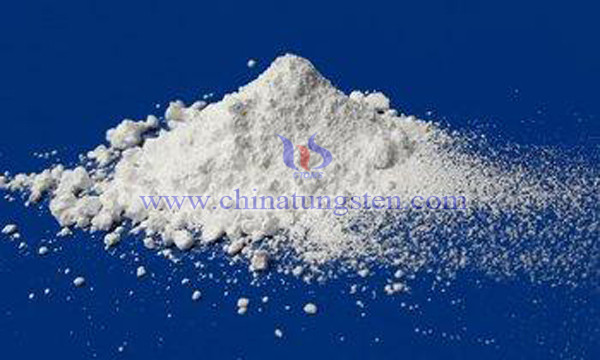Ammonium Tungsten Bronze - Titanium Dioxide Composite Photocatalyst
- Details
- Category: Tungsten Information
- Published on Sunday, 08 September 2019 23:25
With the improvement of science and technology level and the progress of human development level, environmental pollution is becoming more and more serious, toxic and difficult to degrade. Pollutants are more and more widespread in the air, which is harmful to biological safety and ecosystem, and restricts the progress of society.

Semiconductor materials, such as titanium dioxide, have attracted much attention due to their high photocatalytic activity, good stability and low cost. However, the traditional photocatalytic materials can only use ultraviolet light in sunlight because of their wide band gap, and ultraviolet light only accounts for 4% of the total energy of sunlight. Therefore, extending the response wavelength of photocatalytic materials to the whole spectrum including visible and infrared regions is one of the hot spots in the field of photocatalytic research at present, and it is also the way to go. The key to practical application.
It is found that ammonium tungsten bronze has excellent infrared absorption effect. If it can be compounded with existing titanium dioxide materials, a full-band photocatalytic material covering the solar spectrum can be obtained, and the application fields of existing photocatalytic materials can be expanded in order to effectively alleviate the current environmental pollution and energy shortage. The problems of lack are of great significance.
Ammonium tungsten bronze-titanium dioxide composite photocatalyst preparation process: 0.1-1.0g raw material ammonium tungstate was added to 20-80mL ethylene glycol, magnetic stirring was carried out at 80-200 ℃ until it was completely dissolved, then 0.1-1.0g raw material titanium dioxide was added after cooling to room temperature, and the suspension was obtained by stirring after ultrasonic dispersion; 10-80mL acetic acid was added to the suspension. Mixed liquids were obtained by stirring and hydrothermal reaction at 160-240 ℃ for 10-72 H. Then, precipitates were centrifugally washed and dried with deionized water and ethanol respectively to obtain ammonium tungsten bronze-titanium dioxide composite photocatalyst.
Compared with titanium dioxide, ammonium tungsten bronze-titanium dioxide composite photocatalyst not only enhances its photocatalytic activity under ultraviolet light, but also has photocatalytic activity under visible light and even infrared spectrum, realizes the absorption and utilization of the full spectrum of sunlight, and in the field of environmental pollution control and purification, as well as environmental protection functional materials. It has broad application prospects.
- Tungsten Oxide Manufacturer & Supplier, Chinatungsten Online: www.tungsten-oxide.com
- Tungsten News & Prices of China Tungsten Industry Association: www.ctia.com.cn
- Molybdenum News & Price: news.molybdenum.com.cn
- Tel.: 86 592 5129696; Fax: 86 592 5129797; Email: sales@chinatungsten.com



 sales@chinatungsten.com
sales@chinatungsten.com